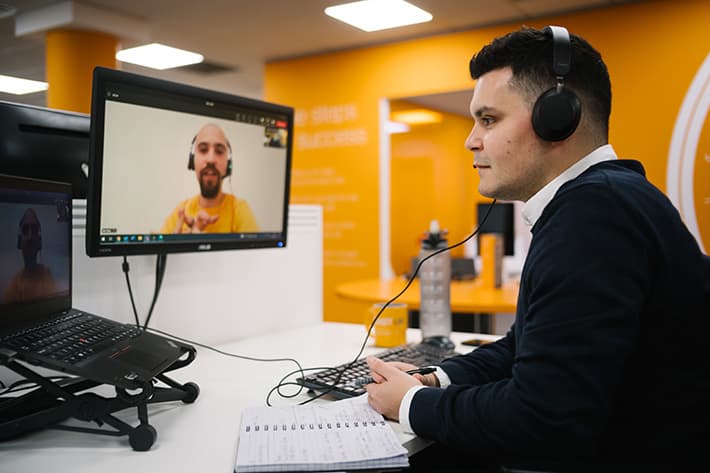
Rowan Kimmins
Jun 12, 2025
Future-proof your Logistics team: How to interview for AI awareness
AI is changing the way logistics works from smarter forecasting and inventory management to automating warehouse operations and improving last-mile delivery. While not every logistics professional needs to be a tech expert, it’s increasingly important that they understand how AI can improve supply chain performance.
If you're hiring for roles like Logistics Manager or General Manager, it’s a good idea to include a few AI-focused questions in your interviews. The goal isn’t to trip candidates up with technical jargon, but to get a sense of their curiosity, adaptability, and strategic thinking when it comes to using AI in real-world logistics settings. Here are some simple, effective questions you can use, plus what to listen for in their responses…
1. Start with a simple understanding check
Ask: “In your view, how is AI currently being used in logistics?”
Why ask it: This helps you gauge their general awareness. You don’t need a deep dive into algorithms, just a sense of whether they’re tuned into how the industry is evolving.
Listen for:
- Awareness of tools like predictive forecasting, real-time tracking, or automated warehousing
- Realistic examples, not just buzzwords
- An interest in how AI can solve everyday challenges
2. See how they connect AI to daily operations
Ask: “Can you give an example of a challenge you’ve faced in logistics where AI could have helped or did help?”
Why ask it: You’re looking for practical thinking here. Can they spot opportunities for improvement, whether or not they’ve had direct AI experience?
Listen for:
- Relevant challenges (e.g. missed delivery windows, excess stock, inefficient routes)
- Logical ideas for how AI might solve the issue
- A mindset focused on efficiency and service
3. Dig into any first-hand experience
Ask: “Have you used any logistics systems that included AI-driven features? What did that involve?”
Why ask it: This tells you whether they’ve already worked with AI, even if it was embedded in a wider tool like a WMS or TMS.
Listen for:
- Familiarity with AI-based features like automated alerts, ETA adjustments, or demand forecasting
- How they interacted with the system (e.g. using insights, helping train others, supporting adoption)
- Lessons they took away from the experience
4. Check their data mindset
Ask: “What kind of data do you think is most important for improving logistics performance?”
Why ask it: AI is only as good as the data behind it. A strong logistics leader should know which numbers matter most—and why.
Listen for:
- Mention of data like transit times, inventory levels, customer orders, or returns
- Awareness of data accuracy and quality
- Interest in using data to make better decisions
5. Gauging their influence as a leader
Ask: “If your team needed to adopt a new AI-powered tool or process, how would you approach it?”
Why ask it: Digital transformation often fails when people resist change. This question helps you see how they lead through innovation.
Listen for:
- A people-first approach: training, communication, easing fears
- Practical experience with change management (even if not AI-specific)
- Confidence in balancing tech adoption with operational demands
6. Ask about the future
Ask: “Looking ahead, where do you think AI will have the biggest impact in logistics?”
Why ask it: This question gives insight into their strategic thinking. Can they see the bigger picture and anticipate what’s coming?
Listen for:
- Trends like smarter planning, improved customer visibility, or predictive maintenance
- Optimism and curiosity about innovation
- Alignment with your company’s direction and ambitions
AI doesn’t need to dominate the conversation, but including a few smart, targeted questions in your interview can tell you a lot about how forward-thinking your candidate is. The best logistics candidates today don’t need to build AI tools, but they do need to know how to work alongside them, ask the right questions, and help their teams adapt.
In a market where efficiency and agility are everything, those are the skills that set future-ready leaders apart.
Hiring for a logistics role and want to make sure your candidate pool includes digitally aware leaders? At Cast UK, we can help you find talent with the right balance of operational strength and strategic foresight.


